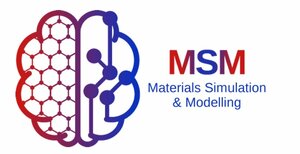Date
Thursday November 4, 2021 from 12:15 PM to 1:15 PMLocation
OnlineOrganizer
EAISIMany TU/e researchers are advancing or using Artificial Intelligence in their research projects. To support cross disciplinary learning and to strengthen the TU/e AI network, EAISI organizes a series of (internal) meetings during lunch time, where various researchers talk about their projects, followed by Q&A.
Login details for this online meeting will be shared in Outlook.
Please send an email to eaisi@tue.nl if you are interested to present or join.
SPEAKERS

PROGRAM
12:15 | Johan Lukkien (Dean M&CS) | Introduction |
12:20 | Sofia Calero, Full Professor at Materials Simulation & Modeling Department of Applied Physics | On the design of multifunctional porous crystals for energy applications |
12:45 | Tao Feng, Associate Professor at Urban Planning and data-driven mobility Department of the Built Environment | Decision making in urban mobility: AI enhanced interpretation and prediction |
13:10 | Wrap-up |
ABSTRACTS
Sofia Calero
On September 1, 2020, we launched the Materials Simulation and Modelling Group (MSM) in the Department of Applied Physics. This group provides conceptual knowledge with the goal of achieving reductions in energy consumption and paving the way to develop a long-term research strategy to design and "invent" materials. The group's research has three main branches: (1) Density Functional Theory based multiscale computer simulations with main focus on perovskite solar cells, (2) electronic structure 2D materials and (3) molecular simulations of porous materials and complex molecules. This presentation will focus on the latter branch, discussing the state of the art, current work, and what we envision in the short and long term. In particular, I will discuss force field development and high-performance methods for automatically calculating surface properties, as well as innovative approaches to assessing material stability and for identifying and designing high-performance multi-functional nanostructured crystals. I will also show how Machine Learning can play a key role within this field, indicating current advantages and limitations.
Tao Feng
Modeling human decision making or individual choices in urban and transportation research has been leading for long mainly by theory-based approaches. While data-driven approaches like data mining/machine learning offers some additional angles to the issues and sometimes different findings. These similarity or differences are often discussed with an emphasis on the interpretability and predictability, but who should we believe? This presentation will explore the potential of the synergy between theory-driven and data-driven models by showing some initial results.
